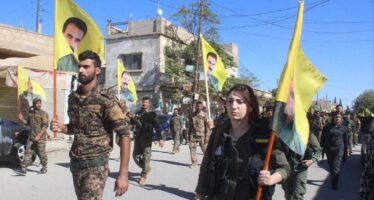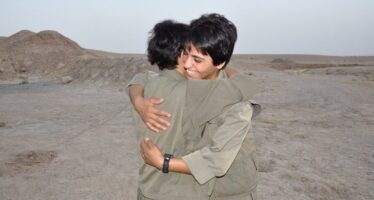Shocking confession by former mayor of Siirt confirmed mass grave
![]()

Ekrem Bilek, former mayor of Siirt, confirmed that Newala Qesaba (Butchers’ River) was a known mass grave in the ’90s
After the recovery of 18 corpses in the mass grave in Mutki, former Mayor Bilek admitted that Newala Qesaba was used by gendarmerie in the ’90s as a mass grave just like Kurdish people always suspected. Newala Qesaba is the first place confirmed to be a mass grave.
Former mayor Bilek stated that before becoming “mayor of Siirt, we use to be told by our family elders that many Kurdish people were buried in the garbage area of Newala Qesaba. When I was elected mayor in 1989 my official relation with gendarmerie began. I witnessed that all the rumors were true.
Many unidentified bodies were being delivered to the municipality by the authorities and we were asked to bury them. This situation was something I had to deal with in my conscience.”
Former mayor Bilek continues his confession saying that he “applied to the Siirt Public Prosecution Office to excavate this place. Finally, the prosecutor was convinced that there might be indeed a mass grave and ordered the excavation. During the excavation in the early 1990, we found eight corpses disfigured beyond recognition and buried with their clothes. There was no response from authorities of that period after my denouncement. Eventually we put all the remains in bags and reburied them separately at Zewye Grave Yard. All corpses had many bullet marks.”
After Bilek’s confession, ?akir Demir, lawyer for Ba?ç? family (one of the families of killed Workers’ Party (PKK) members) applied to the Public Prosecution Office only to be answered by military authorities: “We buried your relative in Nawala Qesaba garbage. We will not deliver the body to you.”
Selim Özalp also an applicant, added that families “believe that this land will be dug after all these denouncement and requests.”
According to allegations, there are around 200 corpses waiting for being recovered under the ground of Newala Qesaba.
Related Articles
Uncertain Times in Rojava – The Autonomous Administration of North and East Syria
![]()
What is the future for the democratic revolution trying to unfold in North and East Syria?
A story of two sisters, comrades in struggle
![]()
Behdinan. Şîmal Amara and Dorşîn Şîmal: one joined the fight for freedom in Amed in 2006, the other five years later in 2011.
Kürkçü: Negotiations only possible with Kurds at the table
![]()
Repression against the Kurds has a high level of tolerance from the EU and the U.S. despite human rights violations,




